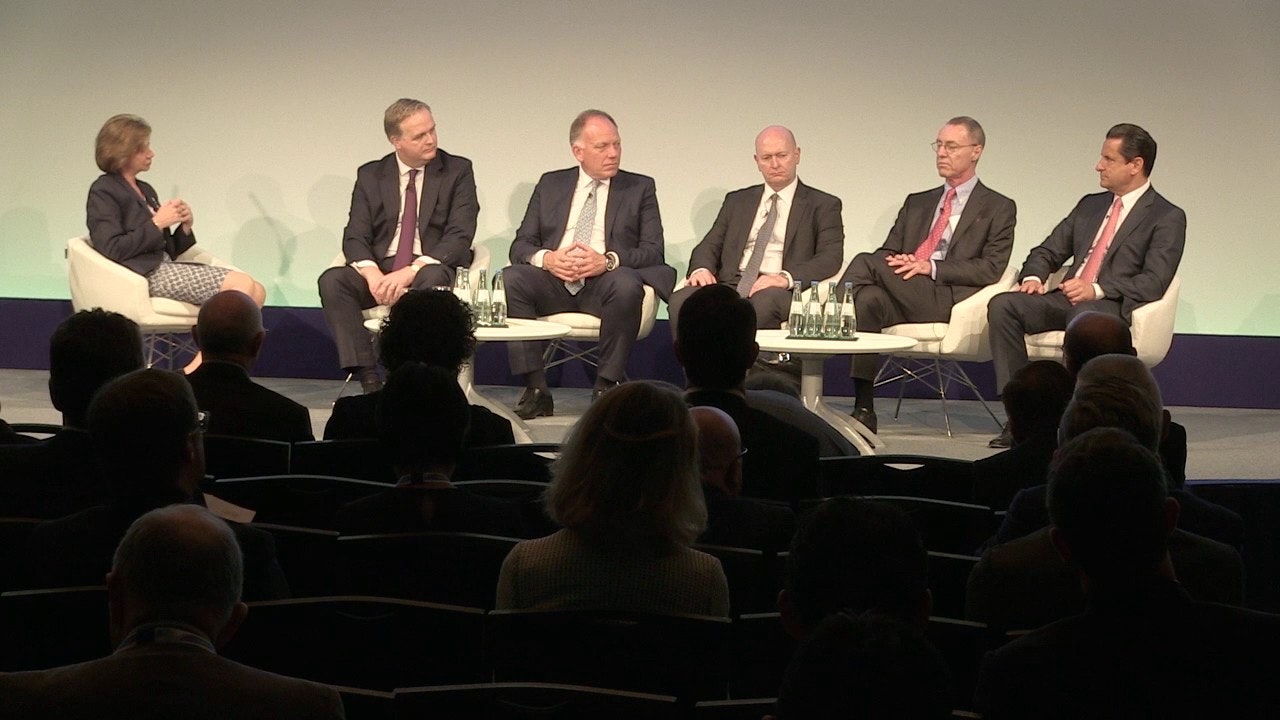Resetting the model in light of MiFID II

The Markets in Financial Instruments Directive II (MiFID II) is about to become very real for the asset management industry, and many attendees at FundForum in Berlin are in the final stages of readying their compliance processes.
The video above was streamed live at FundForum International 2017.
At the top of the list of concerns for the asset management industry is the inducement ban under MiFID II. Many banks and insurers – who dominate distribution in the EU – are likely to limit the number of fund managers they work with.
Jamie Hammond, head of the EMEA client group at AllianceBernstein, said distributors would be reticent about answering questions as to why they are giving more business to certain managers over others, especially if the rebates are different.
There is already precedent around inducement bans. The UK introduced the Retail Distribution Review (RDR), which banned inducements, leading to a sharp drop in ordinary investors paying for professional advice.
“The RDR left a significant advice gap. A lot of people are not getting great counselling about who to invest in,” said Alexander Schindler of Union Asset Management Holding.
Rules such as RDR and MiFID II are generally forcing end clients to invest in cheaper products, such as passive funds.
Regulators including the UK’s Financial Conduct Authority (FCA) have made their displeasure about active management costs known, demanding an explanation why fees have not fallen. Many in the industry saw this as a not too veiled sign the regulator wanted more cash to flow into passives.
Robo-advice has also been one of the big winners from bans on inducement and recent comments from the FCA. Robo-advice tools dominated a number of sessions at Fund Forum, and the asset class is clearly growing. While nobody at Fund Forum is kidding themselves that active managers are flying, there is nervousness that a market correction could expose passive fund investors to significant losses.
Euan Munro, chief executive officer at Aviva Investors, told attendees that investors were increasingly moving into cheap index funds. It is clearly difficult to predict how an active manager will perform in a downturn, but it is pretty obvious what will happen to an equity index tracking product if markets go south.
But what else was discussed at Fund Forum? Many feel that target market rules will lead to reform of sales and marketing at asset managers. The regulators want fund managers to dig deep and identify who the target client is for their products to prevent people being sold investments that do not align with their risk profile.
Distributors will of course need to send client data to the managers so they can confirm whether products are being sold to the right people. In other words, managers are going to stop adopting a one size fits all approach to sales, and start selling products that are more customised to the target market. This is likely to add to complexity, but it could actually result in more net sales if managers become more sophisticated at identifying buying trends in their target market and manufacturing products based on those changes.